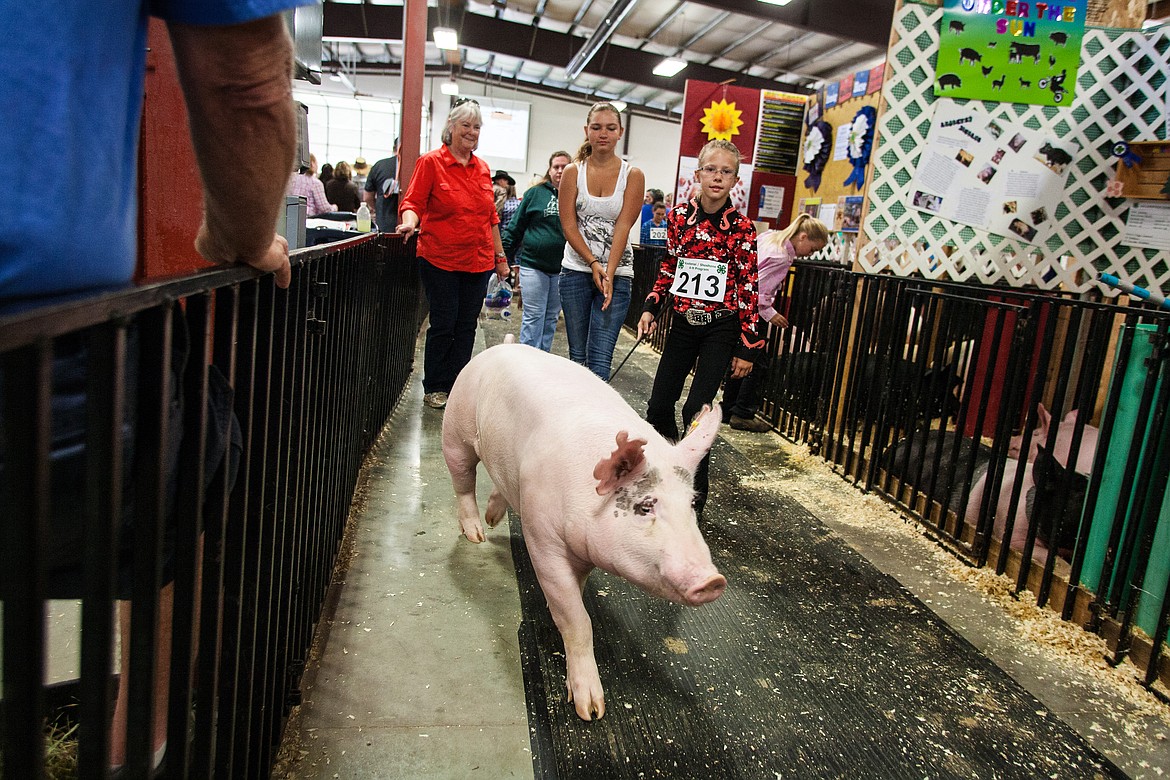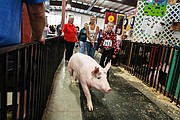A Fair forecast
GM hopeful N. Idaho fair is still a go this summer
COEUR d’ALENE — For 97 years, the show has gone on at the North Idaho State Fair.
Alexcia Jordan, the North Idaho Fairgrounds general manager, is an optimist who believes Year 98 will happen, too.
“At the moment the best we can do is go day by day and follow the governor’s orders,” Jordan said Wednesday. “My staff is fully prepared to continue the fair. We will continue to do that until we are told that we cannot.”
While Jordan and her staff are busy finalizing vendors and programming for the August gathering, they’re also preparing for the possibility that it could be unsafe in a pandemic to put on an event dependent on large crowds.
“We have a plan in place if things don't work out the way we want them to,” Jordan said, declining to elaborate. “I don’t want to give it any momentum or hope at the moment, because I want to give [the fair] our best effort in this situation.”
Last year, 97,082 people attended the North Idaho Fair and Gem State Stampede Rodeo. Jordan paused on the phone before saying she’s terrified of what it would mean for the community and the 4H families who work all year toward the fair if they don’t have the opportunity to gather this summer.
“Come July we’re going to know for a fact that we can have a fair and we’re excited about it,” Jordan said, steering the conversation in a hopeful direction.
In 2019, the fairgrounds brought in $2,029,108 in revenue, $1,381,363 coming directly from the fair. There were 1,669 4-H projects exhibited by 536 participants. The 4-H animal market sale brought in $878,379.
Other events throughout the year, including banquets, weddings, horse shows, and the Pro-West Rodeo Finals drew over $300,000, keeping staff and the facilities operational throughout the year. All April and May events have been postponed or canceled.
As weekend dates run out during the peak season, Jordan has encouraged event organizers to host their activities on weekdays.
Jordan hopes the fair will see more entries this summer as people use the stay-at-home order to work on projects.
Teresa Balderrama, the 4-H program coordinator, said first and foremost, 4-H is a youth development program.
“That is always our focus; giving kids the tools they need to go on in life and be successful,” Balderrama said. “There is truly a whole year of work behind what is exhibited.”
4-H participants are required to give presentations, keep records of their progress, and volunteer in the community. The pandemic has forced the program to shift gears, adding technology and virtual sharing experiences to the learning experience.
“One of things you have to do in a fluctuating market, like the livestock market, is prepare for this kind of situation,” Balderrama said.
Participants in the 4-H program have to make an alternative plan, just like real farmers and ranchers in a pandemic.
“Ultimately this is a tough time for all of us,” Jordan said. “I think that the fair can offer some hope for those that have come across hard times through this [pandemic]. The fair is still an affordable way to get out with their family.”
Fairs across the country are being canceled as the COVID-19 pandemic drags on. Those cancellations also affect vendors and nonprofits.
The fairgrounds are the new home for the Kootenai County Emergency Management Office.
“It's important that we do our part for our community,” Jordan said. “While we don’t have events, we can give them the space.”
Jordan and her employees are self-funded. They receive less than 4% of the county tax dollars that fund fairground operations.



